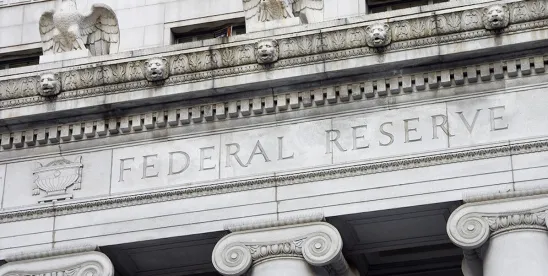Since taking office on January 20th, President Trump and his administration have issued several executive orders and guidance documents relating to federal funding and financial assistance. Several of these actions directed federal agencies to pause federal funding that runs counter to the policy objectives enumerated in the President’s executive orders. On January 27th, the Office of Management and Budget issued Memorandum M-25-13, establishing a near total freeze on federal funding.
Following the issuance of the Memorandum, several coalition groups filed suit against OMB in the U.S. District Court for the District of Columbia seeking injunctive relief from the pause. That same day, a significant number of states filed suit against OMB, the President, and a number of federal agencies, also seeking injunctive relief. In response to the suits, federal judges in D.C. and Rhode Island issued temporary restraining orders (TROs) halting implementation of the pause in federal funding directed by the OMB Memorandum (now rescinded). The TROs extend to similar directives requiring pauses in federal funding. In addition to staying the funding pause, the court orders require OMB to provide notice of the applicable orders to agencies and to instruct them to not take steps to implement the directives in the Memorandum. The latter of the two TROs will expire on February 17.
The timeline below describes the executive actions and subsequent events impacting federal funding. The status of federal funding and financial assistance is evolving and is subject to the outcomes of pending litigation in federal court. The information provided below may not reflect the latest publicly available information. Attorneys and policy professionals at Van Ness Feldman are monitoring the ongoing legal and political developments relating to federal funding and the implications of such developments for clients. This page will be updated periodically to reflect those changes. You can track the latest developments in the two cases referenced above here: National Council of Nonprofits et al v. Office of Management and Budget et al Court Docket; State of New York et al v. Trump et al. Court Docket.
January 20, 2025 White House issued Executive Order Unleashing American Energy (pausing disbursement of Inflation Reduction Act (IRA) and Infrastructure Investment and Jobs Act (IIJA) funds among other things) and other executive orders.
Relevant Language: “Sec. 7. Terminating the Green New Deal. (a) All agencies shall immediately pause the disbursement of funds appropriated through the Inflation Reduction Act of 2022 (Public Law 117-169) or the Infrastructure Investment and Jobs Act (Public Law 117-58)…”
January 21, 2025 OMB issued Memorandum M-25-11 clarifying pause of IRA/IIJA disbursals in the Unleashing American Energy executive order (“pause only applies to funds supporting programs, projects, or activities that may be implicated by the policy in Section 2 of the order”).
January 27, 2025 OMB issued Memorandum M-25-13 establishing near total federal funding freeze.
Relevant Language: “Federal agencies must temporarily pause all activities related to [the] obligation or disbursement of all Federal financial assistance, and other relevant agency acti[vities] that may be implicated by the executive orders…”
January 28, 2025 OMB issued Instructions for Federal Financial Assistance Program Analysis in Support of M-25-13 which listed approximately 2,600 federal programs for review and included 14 clarifying and policy questions to be answered regarding those programs.
OMB required agencies to answer Yes/No to eight policy related questions:
- Does this program provide Federal funding to nongovernmental organizations supporting or providing services, either directly or indirectly, to removable or illegal aliens?
- Is this program a foreign assistance program, or provide funding or support activities overseas?
- Does this program provide funding that is implicated by the revocation and recission of the U.S. International Climate Finance Plan?
- Does this program include activities that impose an undue burden on the identification, development, or use of domestic energy resources (including through funding under the Inflation Reducing Act of 2022; and the Infrastructure Investment and Jobs Act)?
- Does this program provide funding that is implicated by the directive to end discriminatory programs, including illegal DEI and “diversity, equity, inclusion, and accessibility” (DEIA) mandates, policies, programs, preferences, and activities, under whatever name they appear, or other directives in the same EO, including those related to “environmental justice” programs or “equity-related” grants?
- Does this program promote gender ideology?
- Does this program promote or support in any way abortion or other related activities identified in the Hyde Amendment?
- If not covered in the preceding columns, does this program support any activities that must not be supported based on executive orders issued on or after January 20, 2025 (including executive orders released following the dissemination of this spreadsheet)?
January 28, 2025 OMB issued Q&A Regarding Memorandum M-25-13 clarifying only programs implicated by Trump executive orders (e.g., Unleashing American Energy) are subject to the freeze. OMB stated that “[a]ny program not implicated by the President’s Executive Orders is not subject to the pause,” and answered several questions. Several of these questions and OMB’s answers are listed below:
Q: Is this a freeze on all federal financial assistance?
A: No, the pause does not apply across-the-board. It is expressly limited to programs, projects, and activities implicated by the President’s executive orders, such as ending DEI, the green new deal, and funding nongovernmental organizations that undermine the national interest.
Q: Is the pause of federal financial assistance an impoundment?
A: No, it is not an impoundment under the Impoundment Control Act. It is a temporary pause to give agencies time to ensure that financial assistance conforms to the policies set out in the President’s executive orders, to the extent permitted by law. Temporary pauses are a necessary part of program implementation that have been ordered by past presidents to ensure that programs are being executed and funds spent in accordance with a new President’s policies and do not constitute impoundments.
What qualifies as “federal financial assistance”?
The Memorandum defined Federal financial assistance as
(i) All forms of assistance listed in paragraphs (1) and (2) of the definition of this term at 2 [C.F.R. §] 200.1;
- Grants;
- Cooperative Agreements;
- Non-cash contributions or donations of property;
- Direct appropriations;
- Food commodities;
- Other financial assistance;
- Loans;
- Loan guarantees;
- Interest subsidies; and
- Insurance
and
(ii) Assistance received or administered by recipients or subrecipients of any type except for assistance received directly by individuals.
Which executive orders implicate federal funding?
The OMB Memo expressly mentioned several the executive orders that were issued before the memo was released:
- Unleashing American Energy (Jan. 20, 2025);
- Protecting the American People Against Invasion (Jan. 20, 2025);
- Reevaluating and Realigning United States Foreign Aid (Jan. 20, 2025);
- Putting America First in International Environmental Agreements (Jan. 20, 2025);
- Ending Radical and Wasteful Government DEI Programs and Preferencing (Jan. 20, 2025);
- Defending Women from Gender Ideology Extremism and Restoring Biological Truth to the Federal Government (Jan. 20, 2025); and
- Enforcing the Hyde Amendment (Jan. 24, 2025).
***Do not view this list as comprehensive. EOs issued after the OMB Memo may also implicate federal funding.
January 28, 2025 Advocacy groups representing nonprofit organizations, public health professionals, small businesses, and LGBTQ+ older adult sued OMB in the U.S. District Court for the District of Columbia seeking injunctive relief halting implementation of Memorandum M-25-13.
In their complaint, Plaintiffs allege:
- OMB’s directive to pause federal funding was arbitrary and capricious under the APA;
- OMB’s directive to pause federal funding violates the First Amendment because OMB is conditioning the continued receipt of billions of dollars or more in federal funding on recipient’s exercise of their First Amendment rights of free expression and association, it is regulated by the First Amendment;
- OMB’s directive to pause federal funding exceeds OMB’s statutory authority. OMB’s direct statutory authority does not allow it to unilaterally terminate all federal financial assistance programs across the entire government.
January 28, 2025 Twenty-two states and D.C. sued President Trump, OMB, and other agencies in the U.S. District Court for the District of Rhode Island seeking injunctive relief halting implementation of Memorandum M-25-13.
In their complaint, the states and the District of Columbia allege:
- The Executive’s actions by the Office of Management and Budget (“OMB”) violate the APA because Congress has not delegated any unilateral authority to the Executive to indefinitely pause all federal financial assistance without considering the statutory and contractual terms governing these billions of dollars of grants.
- The Executive’s actions violate the APA because the failure to spend funds appropriated by Congress is arbitrary and capricious in multiple respects.
- The failure to spend funds appropriated by Congress violates the separation of powers because the Executive has overridden Congress’ judgments by refusing to disburse already-allocated funding for many federal grant programs.
- Executive branch actions pausing Congressionally directed spending violate the Spending Clause of the U.S. Constitution. U.S. Const. art. I, § 8, cl. law 1.
- Executive branch actions pausing Congressionally directed spending actions violate the presentment (U.S. Const. art. I, § 7, cl. 2), appropriations (U.S. Const. art. I, § 7), and take care clauses (U.S. Const. art. II, § 3, cl. 3) (the Executive must “take care that the laws be faithfully executed . . .”).
January 28, 2025 U.S. District Court for the District of Columbia judge issued a temporary administrative stay pausing implementation of Memorandum M-25-13 (freeze paused until February 3, 2025).
January 29, 2025 OMB Memorandum M-25-13 rescinded by Memorandum M-25-14.
January 29, 2025 White House Press Secretary, Karoline Leavitt, posted on X that the recission memorandum “is NOT a rescission of the federal funding freeze” and that executive orders implicating federal funding have “full force and effect”.
January 31, 2025 Judge U.S. District Court for the District of Rhode Island grants states’ request for TRO
- Prohibiting defendant agencies from “paus[ing], freez[ing], imped[ing], block[ing], cancel[ing], or terminat[ing] [their] compliance with awards and obligations to provide federal financial assistance to the [plaintiff] States.”
- Prohibiting reissuance or other actions giving effect to the Memorandum, including WH Press Secretaries Jan. 29 statement.
February 3, 2025 Judge for U.S. District Court for the District of Columbia issues 14-day TRO (effective until February 17, 2025). The TRO:
- Enjoins Defendants from implementing Memorandum M-25-13,
- Orders Defendants to provide agencies with written notice of TRO and instruct them not to take steps to implement Memorandum and to release any disbursements on open awards that were paused.
Significance of granting TROs
- One factor considered in determining whether to grant a TRO is whether a plaintiff is substantially likely to succeed on the merits.
- Judges in both cases found at least some of plaintiffs’ claims credible and likely to succeed on the merits.






 />i
/>i

